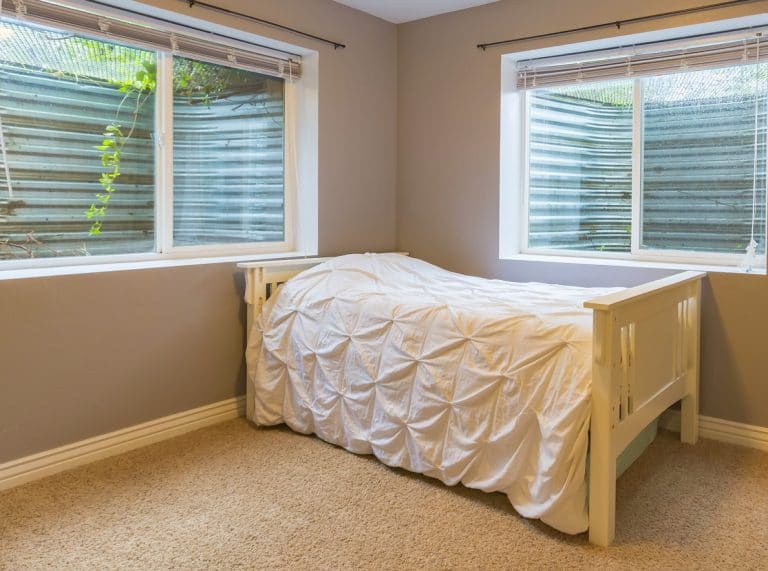Basement ADUs in Portland, 10 Things to Know

How many unfinished basements are there in Portland? As a top local Portland real estate agent, I can say with confidence: thousands! Many of those are perfect candidates for a basement ADU.
Accessory Dwelling Units are of interest to Portland home buyers and homeowners alike because of their potential to offset the high costs of owning a home in Portland. With the trend toward rezoning vast areas of the city to allow for higher-density housing, the ADU option is looking better than ever before. To learn about the lastest updates on Portland real estate zoning density rules, now called RIP 2 (residential infill project), check out our analysis here.
Adding an ADU will increase the value of your home. I conduct a local, annual research report on just how much more a home will sell for if it has an ADU, so I know how to properly price my client’s homes that have added one.
Those without big backyards in which to build the traditional stand-alone ADU can still participate. ADUs inside the home, built in an attic over a garage, or down in the basement are all possible while complying with Portland city code. Here are the top ten things you should know about taking the “basement option” when planning your Portland ADU.
1. Basement ADUs Are Big in Portland, Oregon
In 2017 and 2018, Portland homeowners requested and received permits for 1,248 accessory dwelling unit projects. Of these, the majority (529 units) were detached ADUs, aka backyard cottages. The next-biggest category (264 units) were conversions of basements and other interior spaces into ADUs.
A year after the RIP (Residential Infill Program) was implemented, 271 units of middle housing (duplexes, triplexes, fourplexes, and sixplexes) were permitted in single housing zones, compared with only 102 new single-dwelling houses. (New home construction rates are very low in Portland, Oregon. We keep track of them here.) While these numbers don’t showcase all of the ADUs in Portland, it does show that ADUs are on the rise, especially with the new policies to support them.
Do all these renters really want to live below ground? Yes, and why not? Basement units are cooler in the summer, offer more privacy than street-level housing, and are more accessible than a third-floor apartment.
2. Rentals Are in Demand in Portland
According to RentCafe, the average rent for a Portland apartment was close to $1500/month (as of July 2019). In 2024, that number went up to $1,728. That’s a 15.2% increase in just five years! No wonder people are happy to see more rental properties with potentially lower costs entering the market. The average rental size is around 760 square feet, so Portlanders are used to living small.
3. Basement ADUs Are Generally a Good Resale Value
As a real estate agent, I often get asked by homeowners if an ADU addition is going to bring up the value of the home when they go to sell it in a few years. The simple answer is: of course it will! The homeowners should also know that, in the meantime, it will increase their property taxes, and there are substantial permit costs involved in getting the ADU legal. Also, make sure it is done right and that the basement won’t flood later, wiping out your investment dollars. Keep good access to important plumbing and electrical junctions with panels so you can make home repairs later as necessary.
As a reminder, we publish annual research reports on how much more homes sell for that have ADUs.
4. An ADU and a Finished Basement Are Not the Same Thing
Portland, like most cities, has very specific rules about what constitutes an ADU. If the basement has the potential to be a livable space (it has adequate ceiling height, ventilation, etc.) — that’s great, and finishing it could add to your home value. See our blog post on finishing the basement here. However, if the basement isn’t able to accommodate certain ADU requirements (plumbing and ventilation for separate kitchen and bath, for instance), it’s not going to provide the same return on investment as a completed, city-permitted ADU. For more on Portland’s requirements, check out this article.
5. Basements Can Be Expanded, Lowered (Dug out) and Even Created from Scratch
Many Portland homes were built with crawl spaces, not basements. If creating a basement ADU is highly important to you, and you don’t mind investing a little more upfront, check out your options. It will be pricey, though.
6. Some Portland Homes Are Prohibited from Having Basement Apartments
Yes, Portland wants to encourage as much infill as possible, but we also want to keep people safe. Basement owners must consider flood risk because — how could we forget — the city is situated between three rivers! A small portion of Portland’s riverfront properties are considered to be in a Flood Hazard Area, and living in a basement is prohibited in this area for obvious reasons. Before planning your basement ADU project, check Portland Maps or call the Planning Department to learn more.
7. A Basement Conversion Is a Great Opportunity to do a Portland Seismic Retrofit
The entire west coast is due for a big earthquake along the Cascadia Subduction Zone. That’s why many homeowners choose to do a seismic retrofit to improve their home’s chances of surviving a large quake. For most homes, this means bolting the house to its foundation. In basement remodels such as ADU conversion, the studs and rim joists are often exposed, making it cost-effective to do seismic enhancements at this time.
8. Radon Might Be an Issue
Changing the basement structure by building an ADU could change the radon exposure for everyone in the house. Before beginning construction, test for radon, and discuss appropriate mitigation procedures with your contractor. Then, be sure to test again when the ADU is completed to be sure everything is working as expected. A radon-exposed basement doesn’t mean you can’t build an ADU, it just means you have to take appropriate steps to keep exposure levels down into safe levels. For more about radon, check out our Portland radon map.
9. ADU Financing May Be in Reach
Portland ADU consultant Kol Peterson called 2019 “The Year of ADU Financing Innovation” and compiled a list of potential financing options for homeowners looking to build an ADU. In fact, a new federal policy in 2023 allows for ADU financing as well. It’s not all the same old Home Equity loans! For example, home buyers may be able to get a “renovation loan” that allows the borrower to save money by bundling the home loan with money to construct the ADU. Or, get creative with shared equity financing.
10. Local ADU Experts Are Available to Help
The great thing about Portland’s high volume of ADU construction in the last few years is that smart homeowners can learn from others who have already been there. We also have many architects and designers who focus exclusively on Accessory Dwelling Units. PDXADU is one; they offer an affordable ADU class for homeowners who want to learn more.
Bonus: ADUs Can Be Great for Family Members
While a lot of the focus around ADUs are about creating rentals, your ADU doesn’t have to be rented out. Sure, rentals generate income for homeowners and increase the amount of housing in the Portland area, so we’re not saying to write off renting out your basement ADU completely. However, what we are saying is there’s more reasons to build an ADU than just rentals.
With how the housing market is going, and the cost of renting, if you have another family member looking for housing options, an ADU can be a great option. Not only does this solve the problem of multiple generations living together, but it gives you and your relatives your own spaces to live in. Not only does this increase privacy, but it also helps maintain household harmony over time. No more fighting about dishes if everyone has their own kitchen, after all!
Bonus: ADUs Can Be Great for Business
While you may not be ready to rent out an ADU, they can have other benefits for your home. First, as we’ve noted, if you need some extra space in your home, giving your family members access to an ADU can create a sense of privacy and responsibility.
On top of this, ADUs can work well as business spaces for your home. If you operate a business in your home, and need additional space, an ADU can be a great option. Not only can you write this space off on your taxes if you’re self-employed, but it also creates a good work-life separation, giving you a unique space to work from while increasing your home’s value.
Even if you don’t own a business, having an ADU provides extra space in your home for hobbies, crafts, or even guests. Entertaining becomes easier than ever when you can give your guests a fully furnished space to stay in, after all! With a basement ADU, the possibilities are endless.
Work with a Local Real Estate Expert
Ready to start looking for your perfect basement ADU-ready home? Curious how your home value would be impacted after adding an ADU? Talk with a local real estate expert. Our top 1% buyers agents and top 1% sellers agents would love to connect with you. Give us a call today!


